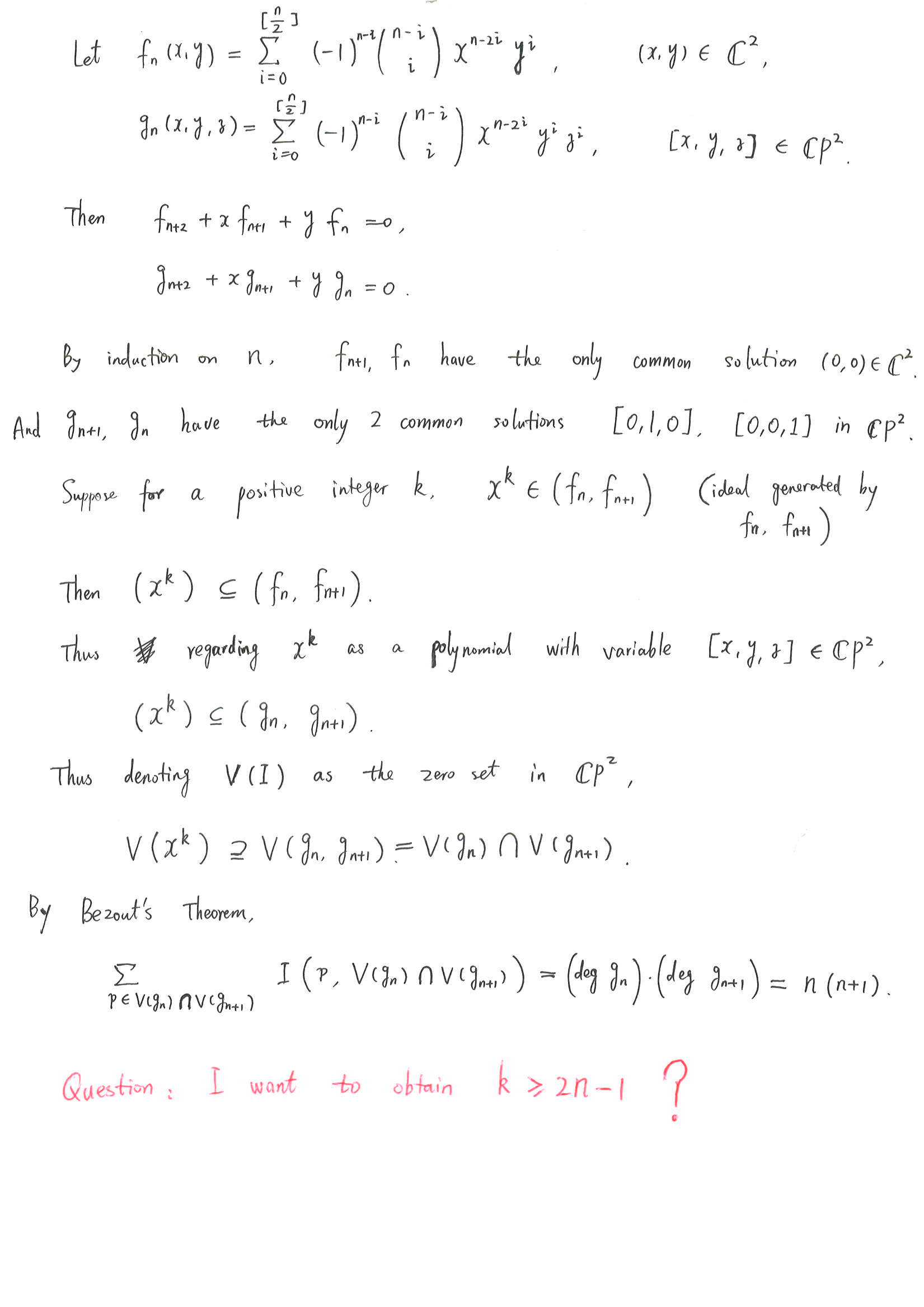Let $\{f_n\}_{n=1}^\infty\in \mathbb{C}[x,y]$ be a sequence of polynomials given by the following expressions $$ f_n(x,y)=\sum_{i=0}^{[\dfrac{n}{2}]}(-1)^{n-i}{{n-i}\choose i}x^{n-2i}y^i. $$
Let $(f_n,f_{n+1})$ denote the ideal generated by $f_n,f_{n+1}$.
Let $h(n)$ be the smallest positive integer such that $x^{h(n)}\in (f_n,f_{n+1})$.
I want to prove $h(n)=2n-1$.
The result is tested by computer "sagemath". I do not know how to prove it?
My attempt:
Step~1. By Euclid Algorithm, I have proved $x^{2n-1} \in (f_n,f_{n+1})$. Hence $h(n)\leq 2n-1$.
Step~2. Let $k$ be an arbitrary positive integer such that $x^k\in (f_n,f_{n+1})$. I want to prove $k\geq 2n-1$.
Ideals: $(x^k)\subseteq (f_n,f_{n+1})$.
Varieties: $V(f_n)\cap V(f_{n+1})=V(f_n,f_{n+1})\subseteq V(x^k)$.
Transform into $\mathbb{C}P^2$.
Multiplicities of $0$: $m_{(0,0)}+m_\infty=n(n+1)\leq M_{(0,0)}+M_\infty=k+M_\infty$.
Hence $k\geq m_{(0,0)}+m_\infty-M_\infty$.
Does $m_{(0,0)}+m_\infty-M_\infty=2n-1$? How to compute $m_{(0,0)},m_\infty,M_\infty$?
